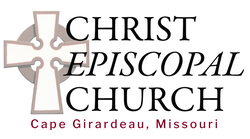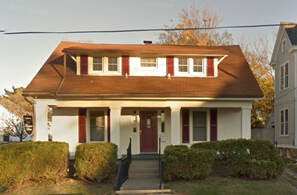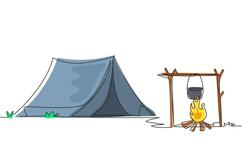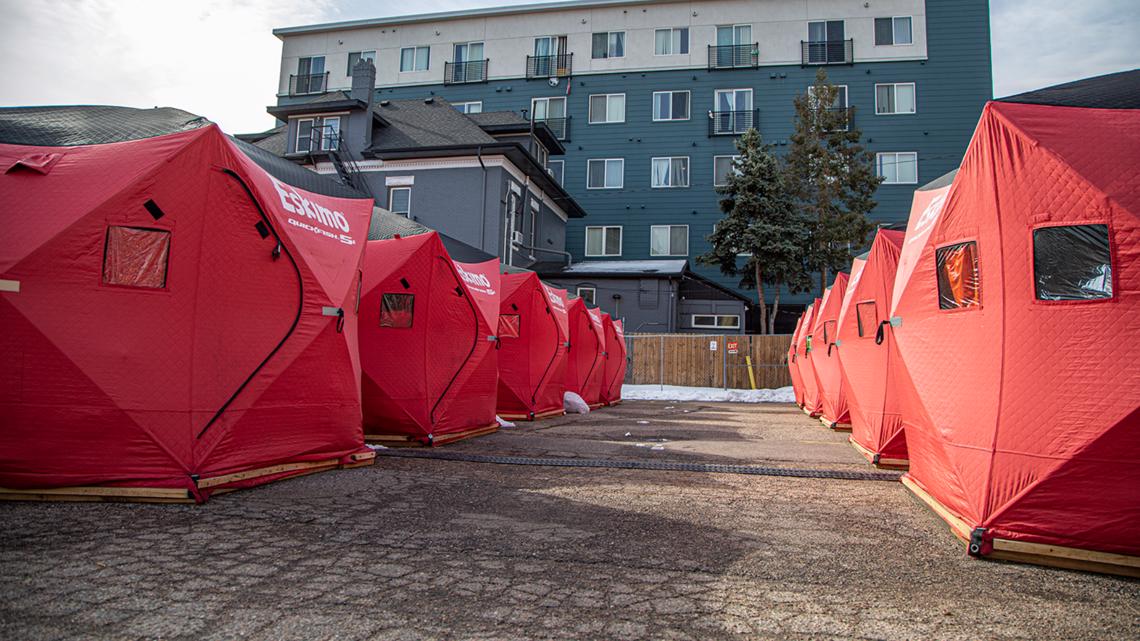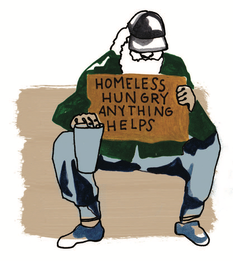|
Aid and advocacy for Cape Girardeau neighbors surviving homelessness.
Street Level Cape Girardeau is profoundly grateful to our hosts, Christ Episcopal Church, for their generous sharing of office and operation space in Fountain House, the former parsonage. This support greatly empowers our mission of aid and advocacy for our neighbors surviving homelessness in Cape Girardeau. Through the Fountain House space and our street outreach we provide tents, blankets, clothing, shoes, bicycles, items of hygiene and comfort, and three meals per week directly to our unsheltered neighbors. We also host a professional housing liaison once a week to advise clients on the very tough road toward getting themselves housed again. While we are a 501(c)3 secular organization with supporters of various religious views, we recognize how powerfully the message of Christ resonates through Christ Episcopal Church in its willingness to help "the least of these, my brethren". On behalf of the Street Level board of directors, and on behalf of the many people whose suffering you are easing, we thank you, CEC congregation, one and all. |
Address: 38 N. Fountain St. Cape Girardeau, MO 63703
Phone: (573)270-9856 Email: [email protected] Facebook: Street Level Cape Girardeau Office Hours: 10:30-12:30 Sun., Wed., and by appt. Follow Street Level on Facebook:
-- Allie Miles, Founder and President -- McKenzie Eston, Vice President --Nancy Striker-Huckstep, Secretary --Mark Koehler, Acting Treasurer --Jenifer Koehler, Director of Food Supply and Distribution --Sarah Beggs, Director of Social Media and Communications |
|
“Are many of my neighbors really living without homes?”
Visibly homeless people are a common sight in Cape Girardeau. But they make up only about 20% of our neighbors living without homes. 200 students in the Cape Girardeau school system are homeless. In 2023 the Street Level outreach team knew, by name, over 90 adult neighbors surviving homelessness, and there are many more we don’t know. Our city has a homelessness crisis. Some invisible homeless neighbors are precariously sheltered – “couch surfing” with friends or relatives, some of whom would face eviction if their landlords learned that someone not on the lease is sleeping at their home. Other neighbors without homes are burning through their savings by staying in a hotel, unable to find an apartment on their low paying job or with their history of eviction. When those resources are exhausted they become unsheltered. They must sleep outdoors, or in places where they are not legally allowed to be, or in places not fit for human habitation. Those who still have a vehicle usually sleep in it. Some sleep in an employer’s building, putting their job at risk. Others trespass to sleep in disused buildings, or hide their tents on wooded spots, or sleep on the floor of a public restroom. Living without good sleep, a shower, and laundry, it’s nearly impossible to get or keep a job. Homelessness is a constant crisis. As one of our neighbors put it, “Homelessness means never having one moment’s peace, not even in your sleep.” Living even a short time unsheltered is a dangerous, life-shortening experience of heat and cold and weariness. It is a life without personal safety. Our neighbors surviving homelessness are frequently robbed. 90 percent of chronically homeless women are raped. Food from food banks may require a kitchen to prepare it. Free clothing isn’t always adequate for living outdoors. Hospitals discharge you while you are still sick or injured with instructions to “recover at home”. The experience is made all the worse by chronic sleep deprivation, which corrodes mental health and reduces the ability to make positive long-term plans. “Why do I see the same neighbors living unsheltered for so long?” The solution to homelessness is homes – and Cape Girardeau doesn’t have enough housing for people below median income. The housing supply is very pinched at the lowest rents. As a result, social services designed to help our neighbors get themselves housed are falling far short – local agencies cannot access enough rentals even when they have the funds (and funds run out fast) to meet the needs. Our national affordable housing crisis is the collective result of cities like ours failing to promote development in proportion to real wages. In other words, the range of housing costs doesn’t match the range of incomes, forcing people with modest and low incomes to compete very hard for rentals. Competition raises all rents, allowing landlords to select only the renters with the best references and credit ratings. As many of us learned in high school, a sustainable household budget should include no more than 33% for housing – including rent or mortgage, insurance, utilities, and maintenance. But people with modest incomes commonly pay 33% for rent alone, and some lower-income people pay 40 or even 50% to rent. This makes households economically unstable and pushes the most vulnerable people to the very brink of homeless. These include especially our neighbors who live with mental illness or substance dependence, both of which are likely to become worse during homelessness. They are the most likely to become chronically unsheltered. The affordable housing crisis is bad for our entire city’s economy because rent-stressed people can’t buy much after paying the landlords – who are, increasingly, corporations not even based in our community. |
“ Housing supply is determined by a city government’s zoning and development decisions. Is our city council taking responsibility?”
The city’s 20-year development plan has no quantifiable objectives based on income dispersion in their affordable housing agenda. The city has no affordable housing trust fund and no housing authority. It applies for no state funding for positive responses to homelessness. What the city does have is an ordinance forbidding our unsheltered neighbors from sleeping on any public property, including parks. Because trespassing on private property is also against the law, it is illegal for our unsheltered neighbors to sleep at all. They have no choice but to break a law in order to live. If you can’t sleep, you can’t - keep your mental health - stay physically healthy - make good decisions - hold down a job - stay alive In effect, the city makes it illegal for our unsheltered neighbors to exist. “What could the city do instead?” Street Level requests that the city designate a place for orderly, sanitary, safe camping – not an improvised “encampment” but a properly supervised campground for sturdy insulated ice-fishing tents – near a public restroom anywhere on the city’s 660 acres of public park land. We also ask the city to approve Community Partnership's proposal to build a tiny homes village for urgent and transitional housing linked to CPSEMO’s life-changing supportive services. We call upon the city to revise the 20 year development plan to include quantified goals for the affordable housing supply along with proactive measures to attain those goals.
“How can I help?” Please join the Street Level Cape Girardeau Facebook group and check regularly to stay informed. Street Level’s mission is aid and advocacy for our neighbors who are surviving homelessness. On the aid side, you can volunteer time and donate food, sleeping bags, tents, and assistance that our neighbors can’t get elsewhere. Help pay for hotel rooms for especially vulnerable neighbors in crisis who can’t camp. Drive someone to a clinic, court date, or rehab center.
On the advocacy side, please email or call your City Council member and the mayor. Tell them you care about all your unsheltered neighbors. If that caring is central to your religious faith, say so. Make whatever other comments and suggestions you see fit. Then please call Street Level to tell us that you took action! |
More resources
|
|
